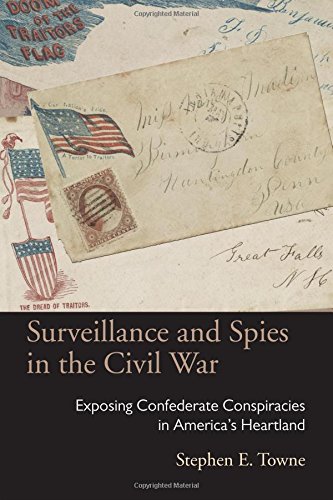
 From The New York Times, there is a double review of Nut Country: Right-Wing Dallas and the Birth of the Southern Strategy by Edward H. Miller (University of Chicago Press) and Right Out of California: The 1930s and the Big Business Roots of Modern Conservatism by Kathryn S. Olmsted (The New Press).
From The New York Times, there is a double review of Nut Country: Right-Wing Dallas and the Birth of the Southern Strategy by Edward H. Miller (University of Chicago Press) and Right Out of California: The 1930s and the Big Business Roots of Modern Conservatism by Kathryn S. Olmsted (The New Press).Also in The NYT is a review of Harold Holzer and Norton Garfinkel's A Just and Generous Nation: Abraham Lincoln and the Fight for American Opportunity (Basic Books).
Here's two from H-Net. Sean Condon's Shays's Rebellion: Authority and Distress in Post-revolutionary America (Johns Hopkins University Press) is reviewed.
"Condon's narrative is free from historiographical discussion or argument, though a brief bibliographic essay ends the book. There are five chapters, bookended by a prologue that portrays the Worcester Court closing in September 1786 and an epilogue that considers the event's impact on the U.S. Constitutional Convention and Massachusetts's ratifying convention in 1787. The book uses primary and secondary sources familiar to any scholar of the event...In terms of the materials used and ground covered, there is nothing new here, but Condon's interpretation merits close attention. Among the book-length manuscripts (dissertations too) specific to Shays's Rebellion, this one is the most sympathetic to the Bowdoin administration in terms of its legislative agenda, its military suppression of the rebellion, and its prosecutions (and executions) for treason. Condon seems to be building on work performed in shorter essays by Richard Buel Jr. and William A. Pencak."
 There is also a review of Stephen E. Towne's Surveillance and Spies in the Civil War: Exposing Confederate Conspiracies in America's Heartland (Ohio University Press).
There is also a review of Stephen E. Towne's Surveillance and Spies in the Civil War: Exposing Confederate Conspiracies in America's Heartland (Ohio University Press)."Over eleven chapters, plus a brief introduction and postscript, Towne narrates the rise of an ad hoc military surveillance system in the Midwest. He attributes its existence first and foremost to the inability of civilian law enforcement to deal with the problem of subversion, citing underfunding and lack of initiative in the US Marshals Service, the Office of the Attorney General, and the Department of the Interior. These early chapters are perhaps the best in the book, and Towne convincingly describes the bureaucratic and legal hurdles facing civil authorities."From HNN there is a review of Eric Rauchway's The Money Makers: How Roosevelt and Keynes Ended the Depression, Defeated Fascism, and Secured a Prosperous Peace (Basic Books).